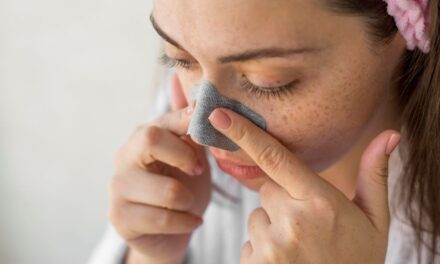We all have our little habits that offer a momentary relief from the stresses of life. One such habit is knuckle cracking – that familiar, albeit controversial, sound that can either be satisfying or cringe-worthy, depending on who you ask. While it might seem harmless, there are compelling reasons to consider giving up this habitual “pop.” In this article, we’ll delve into five surprising reasons why you should think twice before cracking your knuckles, and how making this change can positively impact your overall well-being and mindset.
5 reasons you should not crack your knuckles
- Joint Health and Longevity
- Social Etiquette and Professionalism
- Improved Concentration and Mindfulness
- Positive Mental Associations
- Setting a Personal Challenge

1. Joint Health and Longevity
Imagine your joints as well-oiled machines that keep you moving smoothly through life. While cracking your knuckles might provide a fleeting sense of release, it’s essential to understand the long-term effects. That distinctive “pop” sound occurs due to the release of gas bubbles from the synovial fluid, which lubricates your joints. However, consistent knuckle cracking could lead to joint instability and reduced synovial fluid production, potentially causing discomfort and even arthritis in the long run. Prioritizing joint health by avoiding knuckle cracking can set the stage for a more active and pain-free future.

2. Social Etiquette and Professionalism
We’ve all been in situations where the urge to crack our knuckles becomes irresistible, only to realize that the room has gone oddly quiet. While it might seem trivial, maintaining proper social etiquette and professionalism is crucial. Excessive knuckle cracking can be distracting, not to mention off-putting to those around you. Whether you’re in a meeting, a social gathering, or an important event, refraining from this habit can enhance your image and help you establish a more positive presence.

3. Improved Concentration and Mindfulness
Mindfulness is all about being present in the moment and fully engaged in your surroundings. Surprisingly, ditching the knuckle cracking habit can contribute to better focus and a heightened sense of mindfulness. When you’re no longer preoccupied with the urge to crack your knuckles, you can direct your attention towards your tasks, conversations, or simply appreciating the world around you. By breaking this habit, you open up the door to a more attentive and gratifying way of experiencing life.

4. Positive Mental Associations
Believe it or not, the habit of knuckle cracking can be linked to negative perceptions. People might associate the sound with nervousness, anxiety, or even impatience. Breaking free from this habit can help shift those associations, allowing you to present a more composed and confident demeanor. Over time, your own mental associations will also change, contributing to an overall positive mindset that’s essential for personal growth and well-being.

5. Setting a Personal Challenge
Embarking on a journey of self-improvement often involves challenging ourselves to overcome habits that no longer serve us. Cracking your knuckles might seem harmless, but it’s a habit worth tackling. By setting a personal challenge to break free from this routine, you’re demonstrating your commitment to growth and positive change. This determination can extend to other areas of your life, leading to a domino effect of improvement that encompasses your mentality, societal interactions, and overall personality.
In the grand scheme of things, cracking your knuckles might seem like a minor habit. However, as we’ve explored, its impact can extend beyond the surface. From joint health to social interactions, and even to your personal growth journey, there are compelling reasons to consider letting go of this habit. By making this positive change, you’re not just improving your physical well-being but also shaping a more positive and mindful way of living. So, the next time you feel the urge to crack your knuckles, remember the surprising benefits of abstaining and take a step towards a healthier and happier you.










